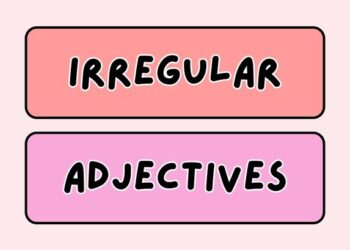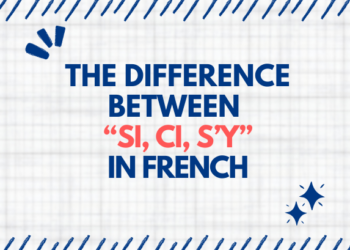Today’s challenge involves “du,” “dû,” “due,” “dus,” and “dues,” seemingly interchangeable particles that can easily trip up even seasoned learners. Let’s delve into their distinct roles and empower you to use them with confidence!
Table of Contents
ToggleDu
- Function: Contraction of “de” and “le,” acting as a partitive article:
- J’ai du pain. (I have some bread.)
- Il boit du jus d’orange. (He is drinking some orange juice.)
- On parle du temps. (We are talking about the weather.)
- Usage: Can be singular or plural depending on the context.
- Formality: Can be used in both formal and informal settings.
Dû
- Function:
- Past participle of the verb “devoir”:
- Il a dû partir tôt. (He had to leave early.)
- La réunion est due commencer à 10h. (The meeting is due to start at 10 am.)
- Adjective meaning “owed”:
- L’argent que tu me dois. (The money you owe me.)
- Le respect qui lui est dû. (The respect he is owed.)
- Past participle of the verb “devoir”:
- Usage: Always singular.
- Formality: Can be used in both formal and informal settings.
Due
- Function: Feminine singular form of “dû.”
- Usage: Always refers to a feminine noun or pronoun in the singular.
- Formality: Can be used in both formal and informal settings.
Dus
- Function: Plural masculine form of “dû.”
- Usage: Always refers to masculine nouns or pronouns in the plural.
- Formality: Can be used in both formal and informal settings.
Dues
- Function: Plural feminine form of “dû.”
- Usage: Always refers to feminine nouns or pronouns in the plural.
- Formality: Can be used in both formal and informal settings.
Key Differences
| Feature | Du | Dû | Due | Dus | Dues |
|---|---|---|---|---|---|
| Word type | Contraction | Participle/Adjective | Adjective | Adjective | Adjective |
| Function | Partitive article | Past participle/owed | Owed (feminine singular) | Owed (masculine plural) | Owed (feminine plural) |
| Usage | Singular/plural | Singular | Singular (feminine) | Plural (masculine) | Plural (feminine) |
| Formality | Varies | Varies | Varies | Varies | Variesv |
Tips for Choosing the Right Word
- Consider the context. What is the word referring to? Is it a quantity, an obligation, or something else?
- Pay attention to grammar. “Du” is always followed by a noun, while “dû,” “due,” “dus,” and “dues” can modify a noun or pronoun.
- Check the number and gender. Make sure the chosen word agrees in number and gender with the noun or pronoun it refers to.
Practice Makes Perfect!
Time to test your knowledge!
By mastering these homophones, you’ll unlock a new level of clarity and accuracy in your French communication. So, go forth, embrace their unique identities, and write with confidence!














